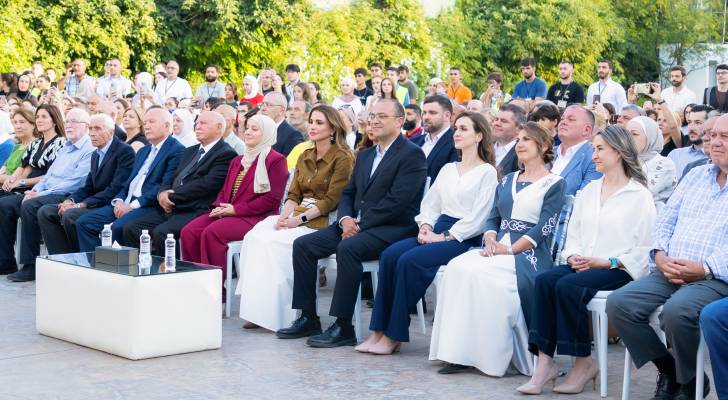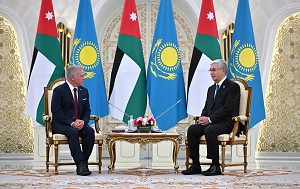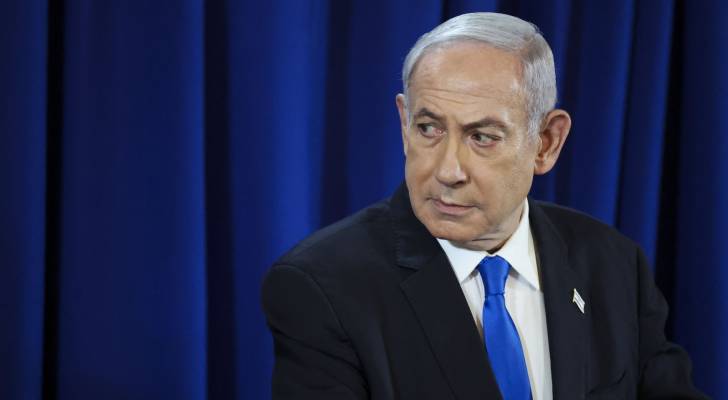EU, UK and Japan urge action against 'famine unfolding' in Gaza
AFP
BRUSSELS/ GENEVA — The European Union, Britain and Japan on Tuesday called for urgent action to stop "famine" in the Gaza Strip.
"The humanitarian suffering in Gaza has reached unimaginable levels. Famine is unfolding before our eyes," a joint statement signed by the EU's top diplomat and foreign ministers from 24 countries, including Canada and Australia.
"Urgent action is needed now to halt and reverse starvation," they said.
UN-mandated experts have warned that Gaza is slipping into famine while international organisations have for months condemned the restrictions imposed by the Israeli authorities on aid distribution in Gaza.
The ministers and EU foreign policy chief Kaja Kallas also demanded Israel "provide authorisation for all international NGO aid shipments and to unblock essential humanitarian actors from operating".
Seventeen European Union countries signed the statement, including France, the Netherlands and usually pro-Palestinian countries such as Ireland and Spain.
Notably absent was Germany, Israel's staunch supporter in the EU, despite its drastic move to halt the export of military equipment to Israel last week.
Israel has until recently enjoyed broad support across the political spectrum in Germany, a country still seeking to atone for the World War II murder of more than six million Jews.
The EU struck a deal last month to increase aid access to Gaza but senior officials have said the agreement has not been implemented fully.
Meanwhile, the UN health agency on Tuesday said Israel should let it stock medical supplies to deal with a "catastrophic" health situation in Gaza before it seizes control of Gaza City.
Israel has said its military would "take control" of Gaza City in a plan approved by Prime Minister Benjamin Netanyahu's security cabinet that sparked a wave of global criticism.
"We want to stock up, and we all hear about 'more humanitarian supplies are allowed in', well it's not happening yet, or it's happening at a way too low a pace," said Rik Peeperkorn, the World Health Organisation's representative in the Palestinian territories.
Fifty-two per cent of medicines were running at zero stock, Peeperkorn said, speaking from Jerusalem.
UN agencies warned last month that famine was unfolding in Gaza, with Israel severely restricting aid entry.
Peeperkorn said the WHO was able to bring in fewer supplies than it wanted "due to the cumbersome procedures" and products "still denied" entry, a topic of constant negotiation with the Israeli authorities.
"We want to as quickly stock up hospitals... following the news, the whole discussion about an incursion in Gaza," he said.
"We currently cannot do that... We need to be able to get all essential medicines and medical supplies in."
Peeperkorn said only 50 per cent of hospitals and 38 per cent of primary health care centres were functioning and that too partially.
Bed occupancy has reached 240 per cent capacity in the Al-Shifa hospital and 300 per cent Al-Ahli Hospital in northern Gaza.
"The overall health situation remains catastrophic," he said. "Hunger and malnutrition continue to ravage Gaza".
Peeperkorn said 148 people died from the effects of malnutrition this year, citing August 5 as the cut-off date.
Nearly 12,000 children aged fewer than five were identified to be suffering from acute malnutrition in July, the highest monthly figure recorded to date in Gaza, Peeperkorn said.
These include 2,562 children suffering from severe acute malnutrition, of which 40 were hospitalised at stabilisation centres.




